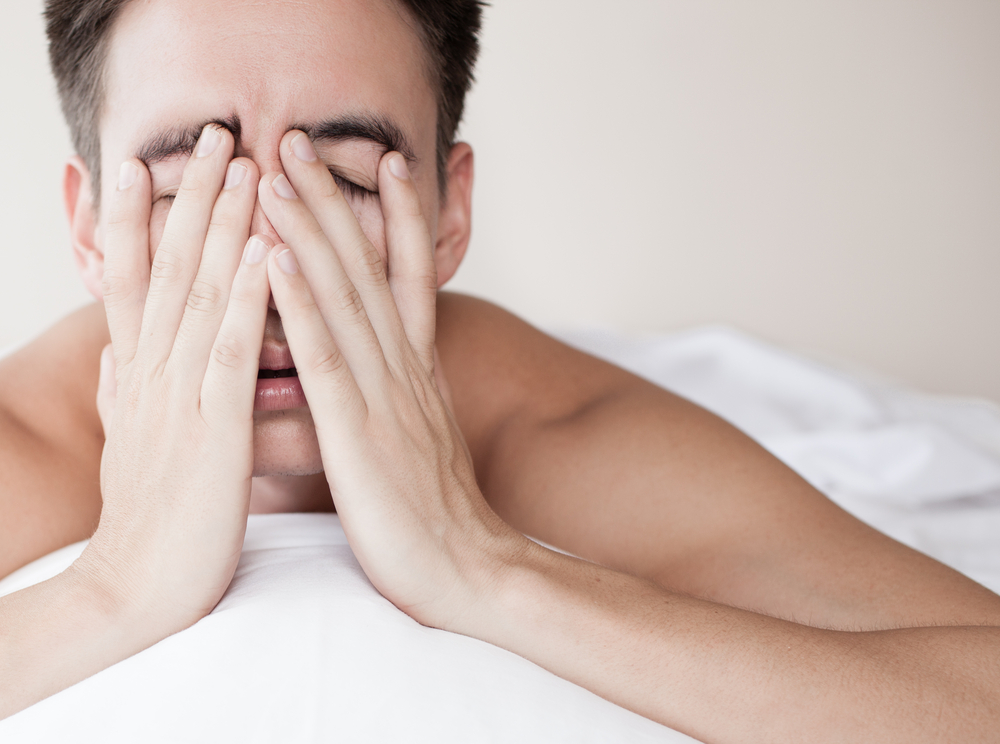Sleep Apnea 101
When Should You See a Doctor About Sleep Apnea?
It’s important to see a doctor right away if you notice any of the symptoms of sleep apnea. This is because sleep apnea, left untreated, can have negative effects on your sleep, health, work, and relationships. The earlier sleep apnea is treated, the more you can prevent any of these problems.
Why Should You See a Doctor About Sleep Apnea?

Sleep apnea can affect your life in many ways, from negatively impacting your health to preventing you from doing well at work or school. You should see a doctor right away if you notice any of the following problems as a result of sleep apnea symptoms:
- Health Complications: Untreated sleep apnea can lead to serious health problems, including high blood pressure, heart disease, stroke, diabetes, and heart arrhythmias. These complications arise from the intermittent oxygen deprivation and stress caused by repeated waking throughout the night.
- Reduced Oxygen Supply: Sleep apnea causes periods where breathing stops, leading to lower oxygen levels in the blood. This can be harmful to organs and overall health.
- Impaired Cognitive Function: The disrupted sleep patterns caused by sleep apnea can lead to daytime drowsiness, fatigue, and impaired concentration and memory, affecting work performance and daily activities.
- Mental Health Impact: Chronic sleep deprivation can contribute to mental health issues like depression and anxiety. Addressing sleep apnea can help improve overall mental well-being.
- Increased Accident Risk: The drowsiness and lack of focus from sleep apnea can significantly increase the risk of accidents, including driving and work-related incidents.
- Reduced Quality of Life: Sleep apnea can severely impact the quality of life, leading to irritability, mood swings, and social difficulties.
- Relationship Strain: The loud snoring associated with sleep apnea can also affect the sleep quality of a partner, potentially causing strain in relationships.
Given these potential consequences and the benefits of early intervention, it’s advisable to consult a doctor if you suspect you have sleep apnea. A proper diagnosis and treatment plan can significantly improve your health and quality of life.
What Are the Symptoms of Sleep Apnea?

You should consider seeing a doctor about sleep apnea if you experience symptoms that suggest this condition or if your sleep partner observes signs indicative of sleep apnea. Key indicators include:
Loud, Chronic Snoring
While not everyone who snores has sleep apnea, loud and persistent snoring is a common symptom, especially if it’s accompanied by gasps or choking sounds.
Pauses in Breathing During Sleep
If you or your partner notice that you stop breathing for short periods during sleep, it’s a classic sign of sleep apnea.
Excessive Daytime Sleepiness
Feeling unusually tired or drowsy during the day, despite getting a full night’s sleep, can be a symptom of the disrupted sleep patterns caused by sleep apnea.
Waking Up With a Dry Mouth or Sore Throat
Frequently waking up with a dry mouth or sore throat may be a sign that you’ve been breathing through your mouth all night, often due to sleep apnea.
Morning Headaches
Regularly experiencing headaches in the morning can be a symptom, possibly due to the low oxygen levels or poor sleep quality associated with sleep apnea.
Difficulty Concentrating
If you find it hard to focus or suffer from memory problems, it could be due to the poor sleep quality caused by sleep apnea.
Mood Changes
Irritability, depression, or mood swings can sometimes be linked to the chronic sleep disturbance caused by sleep apnea.
High Blood Pressure
Sleep apnea can contribute to high blood pressure, so if you have hypertension, especially if it’s difficult to control, it might be related to a sleep disorder.
Obesity
Being overweight is a risk factor for sleep apnea, and if you have other symptoms, it’s wise to get evaluated.
Waking Up Gasping or Choking
If you wake up gasping or choking, it’s a sign that your breathing is being obstructed during sleep, a hallmark of sleep apnea.
How Can Seeing a Doctor Help With Sleep Apnea?

Sleep apnea is a serious medical condition that can contribute to other health issues like heart disease, stroke, and diabetes if left untreated. If you are experiencing any of the above symptoms, particularly if they impact your quality of life or well-being, it’s important to consult with a healthcare professional for a proper diagnosis and treatment plan. A doctor can help with the following:
- Early Identification and Treatment: Early diagnosis and treatment can prevent or reduce the risk of complications and improve overall health and quality of life.
- Customized Treatment Options: A doctor can provide tailored treatment options, which may include lifestyle changes, oral appliances, or even surgery, depending on the severity and nature of the condition.
- Monitoring and Management: Ongoing care and monitoring by a healthcare professional can ensure the effectiveness of treatment and make necessary adjustments over time.
Do You Have Sleep Apnea?
Contact usto get measured for oral appliance therapy.
Contact us
Call us
Location
1700 Eagle Harbor Pkwy, Suite 7
Fleming Island, FL 32003
Hours
Monday 9am- 4pm
Tuesday 9am- 4pm
Wednesday 10am - 5pm
Thursday 9am- 4pm
Friday By Appointment
Saturday Closed
Sunday Closed